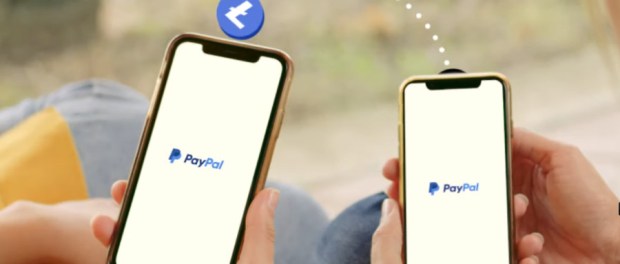
PayPal now allows users not only to buy cryptocurrencies, but also to send them freely. This makes PayPal a real crypto wallet. So far, this has only been possible for US users – but it is still a victory for an open ecosystem.
It is amazing how important it can be when a company does what is actually self-evident. PayPal announces that it now “supports the native transfer of cryptocurrencies between PayPal and other wallets and exchanges.” This has been the most frequent user request since PayPal began offering its customers the purchase of Bitcoin, Ether, Bitcoin Cash and Litecoin in the fall of 2020.
Although we Europeans are still waiting for PayPal to allow us, as promised, to buy and store Bitcoins. But you can still celebrate the announcement. By “allowing” its customers to “flexibly move crypto assets in, out, or within the PayPal platform,” PayPal is demonstrating “the ongoing evolution of our best-in-class platform and enabling customers to interact with the broader crypto ecosystem.“
It’s trite, yes: a wallet is a wallet and allows you to move money. But you still have to realize how little banal the announcement actually is. PayPal has always been a “closed garden”. When you deposit money, you can move the money back and forth between PayPal account, but to get it out, you have to transfer it back to the bank account.
As long as PayPal was only dealing with fiat money, this closed model seemed sufficient, perhaps even expedient. Credit cards do it too, so probably hardly anyone asks questions. When PayPal started to sell cryptocurrencies, the company initially relied on the closed garden approach as a matter of course: you could buy Bitcoin, save it in your PayPal account, send it to other PayPal users and pay where you can pay with PayPal. But you can neither receive nor send bitcoins. Buying is the only way in, selling is the only way out. PayPal was the Bitcoin sidechain of a broker, similar to the northern Italian girobanks from the 15th century with gold and silver.
Apparently, the natural openness of cryptocurrencies is now breaking the closed casing of PayPal. You could say that PayPal only throws off the mindset of medieval banking with Bitcoin, but that’s maybe a bit too much. In any case, having received a full-fledged BitLicense in New York, the company is committed to “responsible innovation” in the crypto sphere within the framework of full compliance with regulation. “The option to send and receive cryptocurrencies is the next step on our way to building a more inclusive and effective financial system.“
PayPal has accepted its position: Bitcoin does not need the payment service provider, but the latter needs Bitcoin to continue its mission. It is not PayPal that can change Bitcoin – by blocking coins in a PayPal sidechain – but Bitcoin changes PayPal. That is why the news has hardly any practical value outside the USA, but it has even greater idealistic added value.









